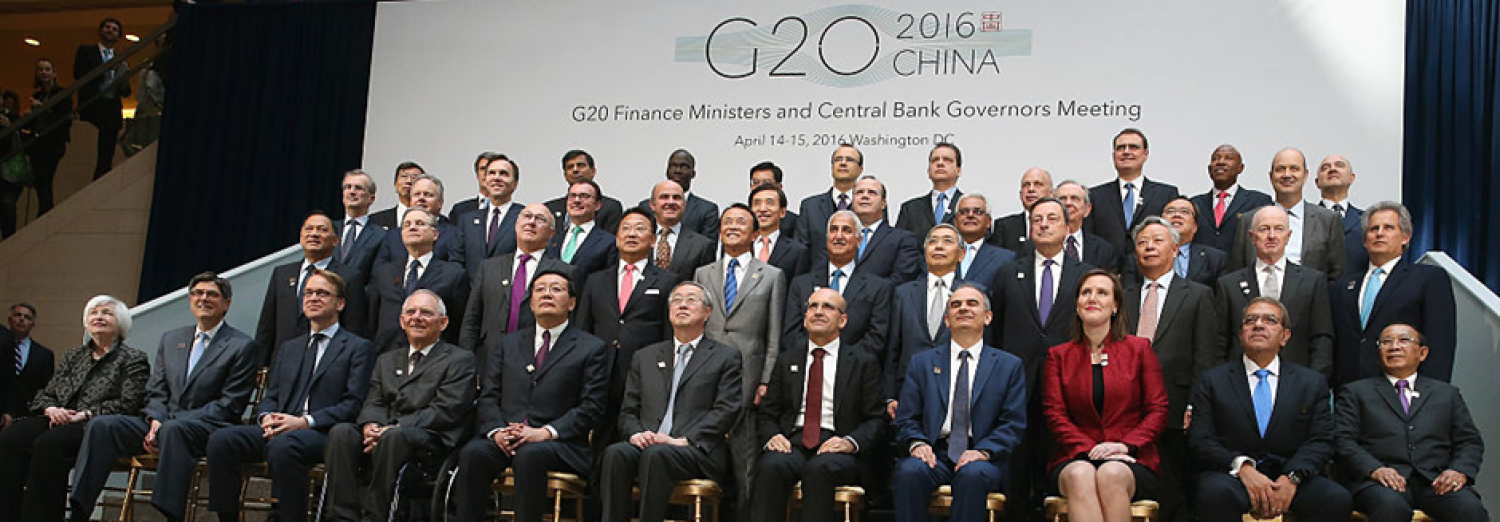Most participants in this Interpreter debate on the G20 agree the forum needs more committed political leadership and a doubling of existing efforts.
But what if strategically minded political leaders aren’t convinced the G20’s agenda enhances their domestic standing? If leaders are expected to take time out of their busy schedules for annual discussions that they do not find to be especially pressing or productive, might they not be tempted to de-prioritise the G20?
For example, recent political events in G20 member states like the United Kingdom (Brexit), the United States (Trump), Turkey (an attempted coup), alongside impending elections in France and Germany, have all been tainted by growing concerns about migration. Migration may be a geopolitical issue that lies outside the G20’s traditional agenda, but many of those fortunate enough not to live in G20-land may find it curious that world leaders could attend such a high-powered meeting and leave substantive discussion about migration (forced or otherwise) off the formal agenda.
Yet in 2015, during the Turkish G20 presidency, there was resistance to a push led by Turkey and the EU to ensure migration was recognised as a global problem in the Antalya Summit Communiqué. While there are sound arguments against the G20 poking its nose into policy quagmires like global migration management, the idea that G20 leaders could assemble in Turkey, presently home to two million refugees from Syria, and not acknowledge the fallout from unregulated cross-border flows of people, is politically naïve. And although migration did eventually make it in to the Communiqué, it was through a fairly general and open-ended clause.
To that end, I have co-authored a piece in the latest G20 Monitor that lays out some more specific options available to G20 leaders on migration issues at the upcoming leaders Summit in Hangzhou. In general, the piece argues that the G20’s engagement with migration matters should be discrete but clear, that the G20 Hangzhou Summit should seek to give the maximum possible momentum-boost to the UN Summit on Refugees and Migrants taking place in New York on 19 September, and that the G20 should consider how it can best support the outcomes of the UN Summit at the G20 Hamburg Summit in 2017. [fold]
Balancing the agenda at the Hangzhou Summit so that leaders can maintain a strong focus on pressing economic matters while still having time to discuss migration concerns (without getting bogged down) will not be easy. The difficulty in getting this kind of balance right is why it is common to see pieces calling for the G20 to simplify its work and stick to its original raison d'être: restoring global economic growth to pre-crisis levels and boosting the classical drivers of growth in order to stave off another global economic crisis.
Yet if the G20’s important conversations about global economic challenges ultimately result in outcomes like the revision of technical financial standards and adjusted banking capital ratios (which appears to be the case in recent years), then it seems fair to question whether annual G20 summits are achieving economic results that could not have been attained by finance ministers and central bank governors working on their own.
When Glenn Stevens writes that the G20 ought to adopt a ‘simpler’ and more ‘achievable’ agenda, as well as devote ‘at least as much energy to discouraging bad ideas’ as to ‘advocating good ones’, I am reminded of his concern expressed in 2008 (pre-GFC) that converting the G20 into a leader-led process would be a ‘mistake’; ‘if you’ve got a heads of state meeting … they’ve got to go home with some great triumph in their bag … it is less likely that you can actually work hard over a number of years on quite important fundamental things’. Whether Stevens’ still feels this way I do not know, and his premonition does offer a plausible diagnosis of the apparent malaise felt by many working on G20 issues.
Either way, the G20 is now a leader-level forum. And as former Canadian Ambassador and a key background player in the G20’s creation Paul Heinbecker has observed, leaders can only discuss technical matters relating to financial regulation for so long, or else ‘the G20 might die of boredom’. Given the Sisyphean task that is lifting the global economy out of its current rut, it should hardly be surprising that leaders occasionally want to put non-traditional items like migration onto the agenda. And even the legendary Sisyphus at least had the benefit of knowing the precise rock he was doomed to push up the hill before it inevitably crashed back down upon him. In contrast, the G20 cannot even agree upon which fiscal or monetary policy ‘rocks’ the global economy most needs to be pushed.
Yes, the G20 does have a ‘Christmas tree problem’ (whereby every new host wants to add a new bauble to the tree) and yes, the G20 should focus on promoting strong, sustainable and inclusive growth. But it is somewhat contradictory for G20 analysts to insist that the strength of the G20 lies in the unique political capacities of leaders, only to then insist that leaders ‘do not get distracted’ by the most pressing political issues of the day. There must be a space for leaders to do a little of both.
Photo by Flickr user Stowe Boyd.



 But if Australia wants to have an impact, it has to apply the Avis motto when it was the number two car-rental company to Hertz: 'we are number two, but we try harder'. Australia is not big enough, rich enough or ugly enough to passively sit back and think it will automatically be involved in all key international forums or have a major influence in international bodies. If it wants to be heard, it has to try harder.
But if Australia wants to have an impact, it has to apply the Avis motto when it was the number two car-rental company to Hertz: 'we are number two, but we try harder'. Australia is not big enough, rich enough or ugly enough to passively sit back and think it will automatically be involved in all key international forums or have a major influence in international bodies. If it wants to be heard, it has to try harder.



